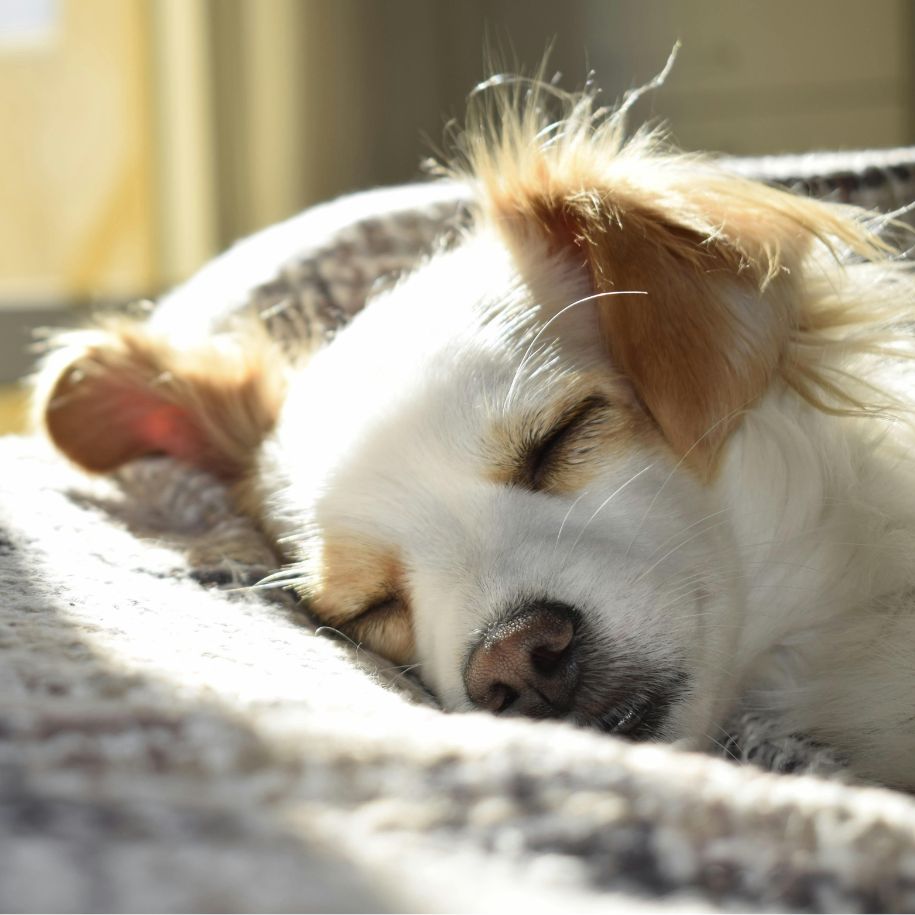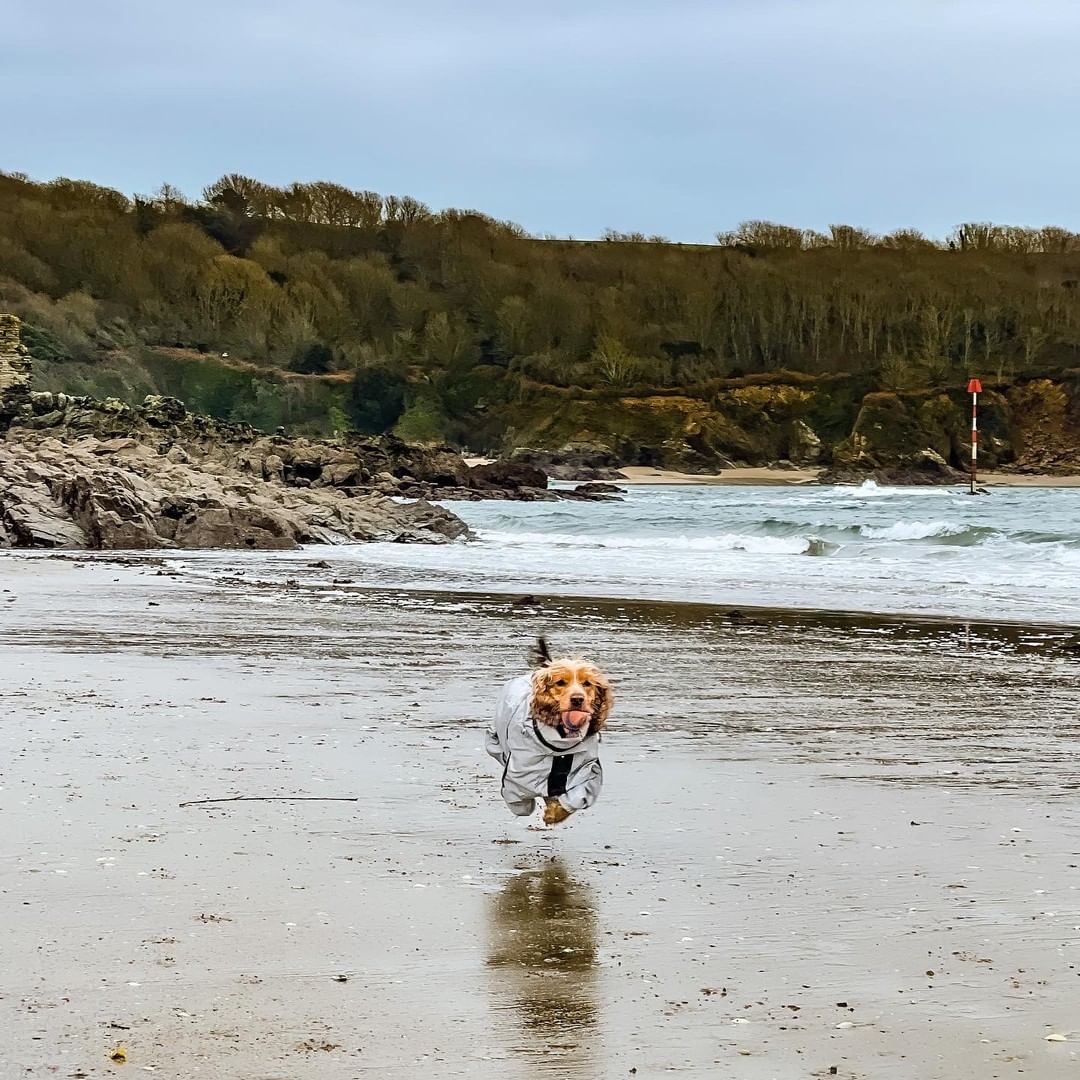Many dogs, from curious puppies to greedy eaters, try eating their own poop or even other animals’ droppings like cat poo or horse manure. Vets call this behaviour coprophagia. Your goal as a pet parent is not to punish the dog, but to reduce access, reward better choices, and rule out health problems if the habit is sudden or intense. We’ll show you how—starting with what coprophagia actually is, why dogs do it, and whether it’s harmful for your dog’s health or your home.
What is Coprophagia?
Coprophagia is the medical term for the act of eating faeces. It’s most common in puppies but can also be seen in adult dogs. While the idea of a dog eating poop may disgust us, for dogs, it can be a leftover instinct from their early life or a signal of other issues.
In the wild, newly born puppies rely on their mother dogs to clean them by licking away waste. This prevents predators from smelling the den and helps keep the area safe. As dogs evolved, this behaviour stuck around. That’s why some dogs continue eating their own poo or the faeces of other animals like cats or horses.
Is It Normal for Dogs or Puppies to Eat Poop?
Yes, for many puppies, it’s a normal part of development. Most puppies go through a phase where they explore everything with their mouths—even poo. This usually stops as they grow older and begin potty training. However, if your adult dog is still eating their own poo or other animals' waste, it might be a habit that stuck or a sign something isn’t right.
Mother dogs also eat the poop of their newborn puppies to keep the den clean. This natural behaviour may carry into adulthood if not redirected early. Some dogs might see fresh poop as a tasty treat, especially if it's from a cat’s litter tray. The smell of undigested food in the faeces can be tempting for greedy eaters.
According to the Kennel Club, poop eating in dogs is common but can often be managed with the right training, a balanced diet, and proper hygiene. It’s also important for dog owners to rule out any medical causes, such as intestinal parasites or nutritional deficiency, which can lead dogs to eat non-food items like faeces.
Do All Dogs Eat Poo?
Not all dogs eat poo, but a surprising number do at some point in their lives. According to research shared by the American Kennel Club, around 24% of dogs have been seen eating faeces at least once. Most dogs grow out of it, especially if pet parents offer consistent potty training and limit access to waste.
Some breeds may be more prone to it. Greedy eaters, dogs who tend to steal food, or those raised in less clean environments may be more likely to eat their own poo or that of other dogs. Dogs raised in puppy mills or overcrowded shelters sometimes learn poo eating as a survival strategy. This bad habit can then carry into their new homes if not corrected early.
Poo eating may also be more common in dogs left alone in gardens or kennels for long periods. Without supervision, a bored or anxious dog might explore whatever’s within their reach—including their own faeces or cat poo from a nearby litter box.
So, while not every dog will engage in coprophagia, it’s not rare. Being aware of your dog’s environment, feeding schedule, and emotional health can help you identify whether they’re at risk.
Why Does My Dog Eat Poop?
There are several reasons your dog may be eating poo. These can be broken into behavioural, medical, and nutritional categories:
1. Behavioural reasons
-
Boredom or lack of stimulation: Dogs with little to do may explore their environment in unusual ways.
-
Attention-seeking: Some dogs learn that eating poo gets a strong reaction from their owners.
-
Stress or anxiety: Dogs in new homes, or those left alone too long, might use poo eating as a coping strategy.
-
Imitating other dogs: Puppies learn behaviours from adult dogs, even ones we’d rather they didn’t.
2. Medical reasons
-
Intestinal parasites: Worms can cause hunger and discomfort, leading dogs to eat non-food items like faeces.
-
Vitamin or enzyme deficiencies: Some dogs may be lacking B vitamins or digestive enzymes. A vet can check for deficiencies and recommend safe enzyme supplements.
-
Poor digestion: If your dog’s food isn’t being fully absorbed, faeces may still smell like food.
3. Nutritional causes
-
Low-quality dog food: Cheap brands may lack nutrients or be harder to digest.
-
Hunger: Dogs on strict diets or poorly timed meals may scavenge.
If your dog is eating poop regularly, speak with your vet. They may recommend diet adjustments or testing for parasites to protect your dog’s health.
Is It Dangerous For My Dog To Eat Poop?
Yes, eating poop can be risky—for your dog and for people around them. While it’s not always life-threatening, it can lead to health issues if left unaddressed.
Health risks for dogs:
-
Parasites: Dogs can catch intestinal parasites like roundworms or hookworms from other animals' faeces.
-
Bacterial infections: Eating poop may expose your dog to harmful bacteria like E. coli or Salmonella.
-
Digestive upset: Vomiting, diarrhoea, or loss of appetite can occur, especially if your dog eats poop from cats, horses, or other animals.
Health risks for humans:
-
If your dog eats poop and licks your face, bacteria or parasites could be transferred to you. This is especially concerning in homes with young children or people with weaker immune systems.
-
According to the NHS, toxocariasis is a potential risk from dog poop, especially if dogs aren't wormed properly.
To protect your family, clean up poo quickly, restrict your dog’s access to waste, and keep their worming treatments up to date. For advice on safe parasite control in UK homes, check the ESCCAP guidelines.
Can My Dog Get Worms From Eating Poop?
Yes, dogs can get worms and other parasites from eating faeces. This includes their own poop, but the risk is much higher when they eat the droppings of other dogs, cats, or wild animals.
Common parasites include:
-
Roundworms and hookworms: These can cause weight loss, vomiting, and diarrhoea. They are especially dangerous for puppies.
-
Whipworms: Can lead to bloody stools and weight loss.
-
Giardia and Coccidia: These parasites often live in contaminated faeces and shared spaces.
Worms and parasites can damage the intestinal tract and overall health of your dog. They may also cause zoonotic diseases, which means they can infect humans. Children and those with weaker immune systems are most at risk.
How to Stop Dogs Eating Poo
Stopping a dog from eating its own poo takes time and consistency, but it can be done. Here are smart, effective strategies used by trainers and veterinary experts across the UK:
1. Clean up immediately - Pick up your dog’s poop as soon as they go. Don’t leave it in the garden, even for a few minutes.
2. Restrict access to cat litter trays - Use a covered litter box or place it behind a cat flap. Keep it out of your dog’s reach.
3. Change your dog’s routine - Feed a high-quality, balanced dog food. Ensure they get enough calories and nutrients. Speak with your vet about dietary deficiency or using enzyme supplements.
4. Increase enrichment - Boredom is a big cause of poo eating. Give your dog puzzle feeders, new toys, and sniff walks.
5. Positive reinforcement - Reward your dog with a high value treat when they ignore poop or walk away from it. Praise them for good choices.
6. Supervise outdoor time - If your dog is unsupervised, they may sneak a bite. Stay close and redirect them if needed.
By keeping your dog’s space clean and offering the right mix of training, attention, and diet, most pet parents can stop this bad habit.

How Do I Clean My Dog’s Mouth After They’ve Eaten Poop?
If your dog eats poop, you’ll want to clean their mouth properly to reduce bacteria and smell.
Steps you can take:
-
Offer fresh water immediately to rinse the mouth.
-
Use dog-safe dental wipes or a clean damp cloth to wipe the gums and tongue.
-
Brush their teeth with a pet-safe toothpaste (never use human toothpaste).
-
Provide dental chews approved by vets or try carrot sticks as natural scrubbers.
Make sure to check your dog’s breath and gums over the next 24 hours. If their breath smells foul or they show signs of digestive upset, contact your vet.、
When To See The Vet
You should see a vet if your dog’s poop eating becomes frequent, changes suddenly, or is paired with other symptoms. In some cases, poop eating could be a sign of an underlying medical condition.
Watch for these signs:
-
Sudden changes in appetite or weight
-
Vomiting, diarrhoea, or unusual stool appearance
-
Persistent bad breath or signs of dental disease
-
Lethargy or signs of pain when passing stool
Your vet may test your dog for parasites, check for dietary deficiencies, and assess their overall health. They may also recommend changes to your dog’s diet, feeding schedule, or supplements like digestive enzymes.
FAQs
Is it bad for my dog to eat dog poop?
Yes. It increases the risk of parasites, bacterial infections, and digestive problems. It can also lead to unpleasant breath and transfer germs to humans.
What nutrients are dogs lacking when they eat poop?
Dogs that eat poop may be low in B vitamins, digestive enzymes, or fibre. A vet can test for dietary deficiency and recommend better dog food or supplements.
How to stop a dog from eating its own poo in the UK?
Clean up poo immediately, use a better diet, add more stimulation, train using high value treats, and block access to litter boxes or outdoor droppings.
What dog breeds are prone to eating poop?
Labradors, spaniels, terriers, and dogs known as greedy eaters may be more likely to eat poo. Dogs from shelters or with poor early care may also show this behaviour.
Conclusion
Poop eating is a common behaviour in many dogs, but it can be managed. With the right tools, awareness, and care, dog owners in the UK can stop their dogs from eating their own poop or faeces from other animals.




